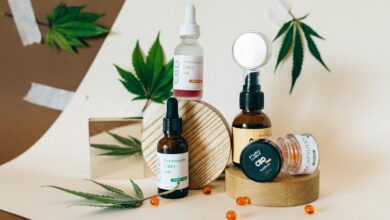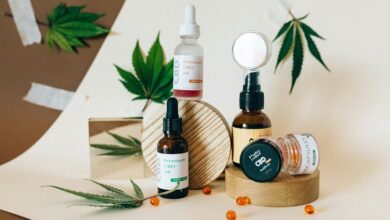Does Cbd Show up in Drug Test

The question of whether CBD shows up in drug tests is complex. CBD itself is not typically detected in standard screenings. However, many products contain trace amounts of THC, which could result in a positive result. Understanding the differences between CBD and THC, as well as the factors affecting drug tests, is essential for users. What considerations should individuals keep in mind when selecting CBD products to avoid testing complications?
Understanding CBD and THC: The Key Differences
Cannabidiol (CBD) and tetrahydrocannabinol (THC) are two prominent compounds found in the cannabis plant, each with distinct properties and effects.
CBD benefits include potential therapeutic effects without psychoactivity, while THC is known for its intoxicating effects.
THC legality varies by region, often complicating its use.
Understanding these differences is crucial for individuals seeking freedom through cannabis use and its potential advantages.
How Drug Tests Work: What They Detect
Drug tests are designed to identify specific substances in a person's system, focusing primarily on the metabolites produced when drugs are processed by the body.
Various drug testing methods, such as urine and blood tests, target specific substances within defined detection windows.
Understanding these parameters is crucial for individuals concerned about the implications of drug tests, particularly regarding CBD and its potential traceability.
Factors That Influence Drug Test Results for CBD Users
While many users rely on CBD for its therapeutic benefits, several factors can influence the outcome of drug tests.
Cannabinoid metabolism varies among individuals, affecting how long CBD and its metabolites remain detectable.
Additionally, testing thresholds set by laboratories can determine whether a positive result occurs.
Users should be aware that even trace amounts of THC in some CBD products may impact test outcomes.
Tips for Choosing CBD Products to Minimize Testing Risks
How can consumers effectively choose CBD products to minimize the risk of testing positive in drug screenings?
First, prioritize product sourcing by selecting reputable brands that provide third-party lab results.
Next, adhere to dosage guidelines, avoiding excessive intake.
Full-spectrum products may contain trace THC, so opting for broad-spectrum or isolate forms can further reduce testing risks while still delivering potential benefits.
Conclusion
In conclusion, while CBD itself is unlikely to trigger a positive drug test, the presence of THC in certain products poses a risk. Users should be cautious, akin to navigating a labyrinthine marketplace in search of a prized elixir. By selecting broad-spectrum or CBD isolate options and prioritizing reputable brands that provide clear lab results, individuals can mitigate the potential for unexpected outcomes in drug testing. Knowledge and diligence remain essential in this evolving landscape of cannabis-derived products.






